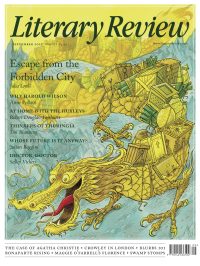Alberto Manguel
Travels with Orlando
Castelnuovo di Garfagnana is a small fortified town in a valley halfway between the Apennines and the Apuan Alps, in the province of Lucca. I’m here at the invitation of the town hall to give a talk on Ludovico Ariosto, who was governor of this remote citadel for three years, from February 1522 to June 1525. Castelnuovo is celebrating his arrival five centuries ago with the opening of a Centre for Fantasy and the Imagination in La Rocca, the garrison tower occupied by the poet during his stay. The Duke of Ferrara sent Ariosto to this bandit-infested province, some say to rid the ducal court of his influence, others to distance him from his love, the beautiful Alessandra Benucci. Whatever the case, Ariosto proved himself an excellent governor. Legend has it that once, while out on a stroll, he fell into the hands of a band of robbers. When the chief discovered that his captive was none other than the author of Orlando Furioso, he apologised to the poet and kept guard on him until he reached home safely.
I’m supposed to talk about Ariosto’s idea of what is fantastic and what is real in Orlando Furioso. The great narrative poem has always seemed to me a sort of Road Runner and Wile E Coyote masterpiece, an endless comedy of encounters and misencounters, sudden unexpected dangers and sudden magical solutions, cunning cross-dressings and absurd coincidences, and endless travels from one end of the known world to the other and beyond, all the way to the moon, where, in Ariosto’s cosmology, everything that we lose on earth is carefully stored. Therefore, when Orlando becomes furioso and loses his wits, the brave Astolfo flies to the moon with St John the Evangelist, who explains that the lost wits of Orlando are kept in a little jar conveniently labelled with the hero’s name and that Astolfo should carry it back to earth and make Orlando drink it. A number of strong men are needed to pin down the crazy Orlando and force the sensible beverage down his gullet. In the end, almost forty thousand lines later, all is well and the hero becomes sane once more.
***
Ariosto kept on tinkering with Orlando Furioso until the day of his death, adding cantos and amending lines. In his poem Ariosto, perhaps seeking relief from the strictures of his administrative job, seems not to give a toss for narrative logic. Everything and anything that can happen does happen,

Sign Up to our newsletter
Receive free articles, highlights from the archive, news, details of prizes, and much more.@Lit_Review
Follow Literary Review on Twitter
Twitter Feed
How to ruin a film - a short guide by @TWHodgkinson:
Thomas W Hodgkinson - There Was No Sorcerer
Thomas W Hodgkinson: There Was No Sorcerer - Box Office Poison: Hollywood’s Story in a Century of Flops by Tim Robey
literaryreview.co.uk
How to ruin a film - a short guide by @TWHodgkinson:
Thomas W Hodgkinson - There Was No Sorcerer
Thomas W Hodgkinson: There Was No Sorcerer - Box Office Poison: Hollywood’s Story in a Century of Flops by Tim Robey
literaryreview.co.uk
Give the gift that lasts all year with a subscription to Literary Review. Save up to 35% on the cover price when you visit us at https://literaryreview.co.uk/subscribe and enter the code 'XMAS24'